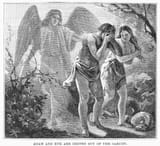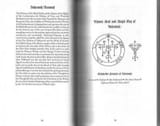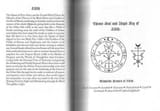>>40841083
en.wikipedia.org/wiki/Sanchuniathon
Phoenician history of Philo. He quotes Sanchuniathon. I advise you to study Philo's work.
He also mentions en.wikipedia.org/wiki/Sydyk
And this is connected with Melchizedek
צדק - zedek - sydik
Type it into Google and it will give you a page of the planet Jupiter
Muslims call the place of baptism Qasr al-Yahud
The only begotten son of El was called Yehud (all the others are apparently just sons because his followers are Eloim-Elohi)
btw
>A trilingual inscription of the 2nd century BCE from Sardiniaalso identifies Eshmun with the Greek Asclepius and the Latin Aesculapius. Pausanias quotes a Sidonian as saying that the Phoenicians claim Apollo as the father of Asclepius, as do the Greeks, but unlike them do not make his mother a mortal woman.The Sidonian then continued with an allegory which explained that Apollo represented the sun, whose changing path imparts to the air its health which is to be understood as Asclepius. This allegory seems likely a late invention. Also, Apollo is usually equated with the Phoenician plague god Resheph. This might be a variant version of Eshmun's parentage, or Apollo might also be equated with Sadyk, and Sadyk might be equated with Resheph.
I know, it's a weird combination, but there's something wrong with the world with this
Btw
Mot - Baal's enemy had a spear
Vritra had a spear
Seth had a spear
Cain means spear
Pontius Pilate means sea spear (google it)
It looks like this is either some rewritten old legendary myth or higher powers played out a scene (well, you know, simulacra and simulation, 4th matrix, a story retold 100500 times, where it's not clear where the myth is and where the reality is, it's hard to explain, but that's exactly the feeling that comparative mythology evokes)
























